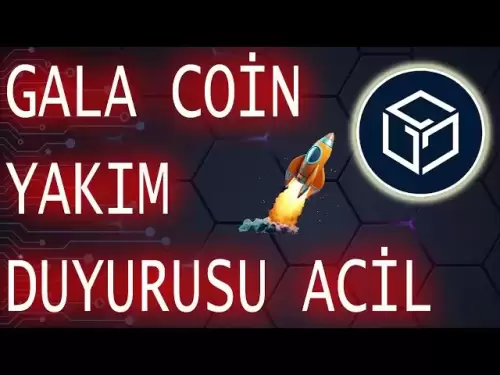-
 Bitcoin
Bitcoin $106,731.2224
-1.05% -
 Ethereum
Ethereum $2,444.9804
-1.20% -
 Tether USDt
Tether USDt $1.0003
0.01% -
 XRP
XRP $2.1882
0.09% -
 BNB
BNB $651.1435
-0.61% -
 Solana
Solana $148.3252
-2.09% -
 USDC
USDC $1.0000
0.01% -
 TRON
TRON $0.2787
0.55% -
 Dogecoin
Dogecoin $0.1598
-3.16% -
 Cardano
Cardano $0.5520
-2.43% -
 Hyperliquid
Hyperliquid $39.0960
-2.64% -
 Bitcoin Cash
Bitcoin Cash $516.9519
2.98% -
 Sui
Sui $2.7011
-2.95% -
 Chainlink
Chainlink $13.0582
-1.71% -
 UNUS SED LEO
UNUS SED LEO $8.9250
-2.53% -
 Stellar
Stellar $0.2359
-0.18% -
 Avalanche
Avalanche $17.3856
-3.73% -
 Toncoin
Toncoin $2.8095
-3.56% -
 Shiba Inu
Shiba Inu $0.0...01121
-1.95% -
 Litecoin
Litecoin $85.2795
-0.85% -
 Hedera
Hedera $0.1471
-2.15% -
 Monero
Monero $319.8004
1.12% -
 Dai
Dai $1.0001
0.01% -
 Ethena USDe
Ethena USDe $1.0001
0.02% -
 Bitget Token
Bitget Token $4.5344
-1.07% -
 Polkadot
Polkadot $3.3224
-2.96% -
 Uniswap
Uniswap $6.9697
-2.75% -
 Aave
Aave $266.1658
-2.25% -
 Pepe
Pepe $0.0...09414
-3.41% -
 Pi
Pi $0.4913
-3.29%
Does the Exodus wallet support custom RPC nodes?
Exodus wallet does not support custom RPC nodes, limiting user control over blockchain interactions, but offers user-friendly features and hardware wallet integration.
Apr 06, 2025 at 02:43 pm
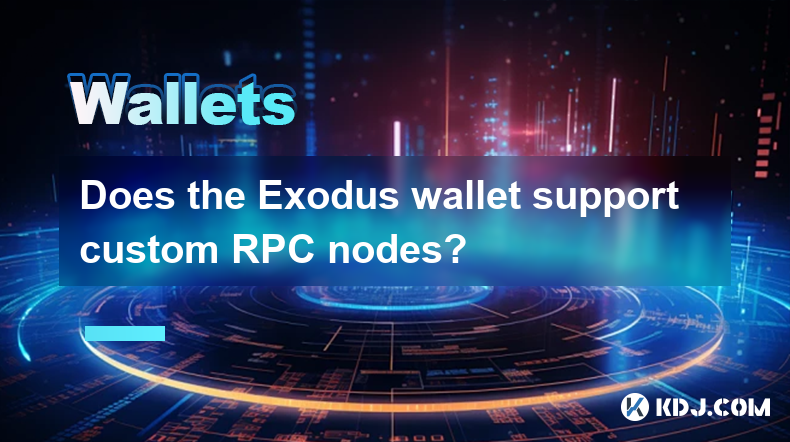
The Exodus wallet is a popular choice among cryptocurrency enthusiasts due to its user-friendly interface and support for a wide range of cryptocurrencies. One of the key features that many users look for in a wallet is the ability to connect to custom RPC nodes. This article will explore whether the Exodus wallet supports custom RPC nodes, providing detailed insights and answering potential questions that users may have on this topic.
Exodus wallet is known for its ease of use and robust security features. However, when it comes to advanced functionalities like connecting to custom RPC nodes, users often wonder if Exodus meets their needs. Custom RPC nodes are important for users who wish to have more control over their transactions and access to specific blockchain networks that might not be supported by default in the wallet.
Understanding RPC Nodes
Before diving into whether Exodus supports custom RPC nodes, it's essential to understand what RPC nodes are. RPC, or Remote Procedure Call, nodes are servers that allow you to interact with a blockchain network. They enable users to send transactions, query blockchain data, and perform other operations without running a full node themselves. Custom RPC nodes are user-specified servers that can be configured to connect to different networks or provide enhanced performance and privacy.
Exodus Wallet Features
Exodus wallet offers a range of features designed to cater to both novice and experienced cryptocurrency users. These include:
- Support for over 100 cryptocurrencies
- Built-in exchange for swapping assets
- Portfolio tracking and management tools
- Hardware wallet integration for enhanced security
- User-friendly interface with a focus on design and usability
Despite these features, the question remains whether Exodus supports the use of custom RPC nodes.
Custom RPC Nodes in Exodus
As of the latest updates, Exodus wallet does not support the use of custom RPC nodes. This means that users cannot manually specify a different RPC node to connect to for their transactions and interactions with the blockchain. Instead, Exodus relies on its own set of nodes and third-party services to handle these operations.
Why Custom RPC Nodes Matter
Custom RPC nodes are important for several reasons:
- Enhanced Privacy: By using your own node, you can ensure that your transaction data is not exposed to third-party services.
- Control Over Network: Users can choose to connect to specific networks or nodes that might offer better performance or lower fees.
- Access to Different Networks: Some users might need to connect to testnets or other specialized networks not supported by default in wallets.
Given these benefits, the lack of custom RPC node support in Exodus might be a limitation for some users.
Alternatives to Custom RPC Nodes in Exodus
While Exodus does not support custom RPC nodes, there are alternative ways to achieve similar functionality:
- Using a Hardware Wallet: Integrating a hardware wallet like Ledger or Trezor with Exodus can provide an additional layer of security and control over your assets.
- Using a Different Wallet: Some wallets, such as MetaMask or MyEtherWallet, do support custom RPC nodes and might be a better fit for users needing this feature.
- Running Your Own Node: For advanced users, running a full node and using it with a compatible wallet can provide the highest level of control and privacy.
User Experience and Feedback
User feedback on the lack of custom RPC node support in Exodus varies. Some users appreciate the simplicity and security of using Exodus's default nodes, while others find it a significant limitation. Here are some common sentiments from the community:
- "Exodus is great for beginners, but I need more control over my transactions."
- "I wish Exodus supported custom nodes; it would make it a perfect wallet for me."
- "The simplicity of Exodus is its strength, but it's missing some advanced features."
Future Possibilities
While Exodus currently does not support custom RPC nodes, it's worth noting that wallet developers often listen to user feedback and may consider adding such features in future updates. Users interested in this functionality should keep an eye on Exodus's roadmap and community forums for any announcements regarding new features.
Conclusion
In summary, the Exodus wallet does not support the use of custom RPC nodes. This can be a limitation for users who require more control over their blockchain interactions. However, Exodus offers a range of other features that make it a popular choice for many cryptocurrency users. Those needing custom RPC node support might consider using alternative wallets or integrating hardware wallets for enhanced security and control.
Common Questions
Q: What is an RPC node?
A: An RPC node is a server that allows you to interact with a blockchain network by sending transactions, querying data, and performing other operations without running a full node yourself.
Q: Why would someone want to use a custom RPC node?
A: Users might want to use custom RPC nodes for enhanced privacy, control over the network they connect to, and access to different blockchain networks not supported by default in wallets.
Q: Can I use a hardware wallet with Exodus?
A: Yes, Exodus supports integration with hardware wallets like Ledger and Trezor, which can provide an additional layer of security and control over your assets.
Q: Are there any wallets that support custom RPC nodes?
A: Yes, wallets like MetaMask and MyEtherWallet support the use of custom RPC nodes, offering users more control over their blockchain interactions.
Q: Is there any chance Exodus will support custom RPC nodes in the future?
A: While there are no current plans announced, wallet developers often consider user feedback and may add such features in future updates. Users should keep an eye on Exodus's roadmap and community forums for any announcements.
Disclaimer:info@kdj.com
The information provided is not trading advice. kdj.com does not assume any responsibility for any investments made based on the information provided in this article. Cryptocurrencies are highly volatile and it is highly recommended that you invest with caution after thorough research!
If you believe that the content used on this website infringes your copyright, please contact us immediately (info@kdj.com) and we will delete it promptly.
- Powell, Stablecoin Regulation, and Circle's Bold Move: A New York Minute on Crypto's Future
- 2025-07-02 02:30:12
- Ethereum Price, Tom Lee, and Bitcoin: A New Era for Crypto?
- 2025-07-02 02:30:12
- Hoskinson, Ripple, Cardano DeFi: A New Era of Collaboration?
- 2025-07-02 02:35:12
- BlockDAG, ALGO, and the Crypto Trends Shaping 2025
- 2025-07-02 01:50:12
- Cold Wallet, Token, Gains: Is CWT the Smartest Crypto Move?
- 2025-07-02 01:10:12
- Pi Coin's Rocky Ride: Support Levels, Recovery Timeline, and What the Experts Are Saying
- 2025-07-02 01:10:12
Related knowledge
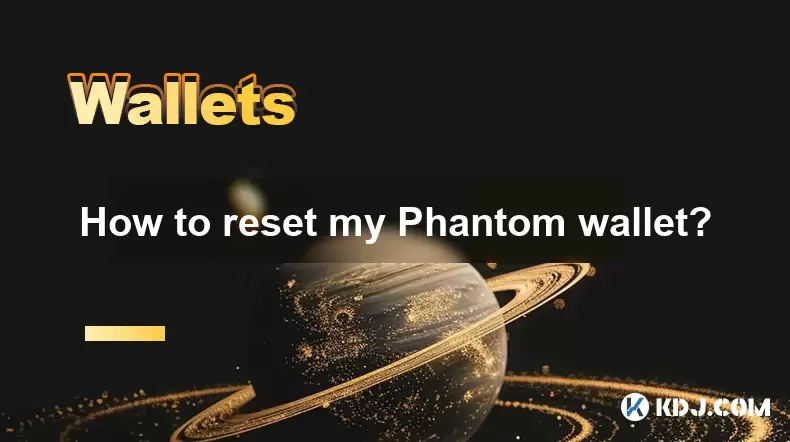
How to reset my Phantom wallet?
Jul 02,2025 at 12:36am
Understanding the Need for Resetting Your Phantom WalletIf you're using a Phantom wallet, you may encounter situations where resetting your wallet becomes necessary. This could be due to forgotten passwords, seed phrase issues, or account corruption. Phantom is a non-custodial wallet primarily used for interacting with the Solana blockchain, and it stor...
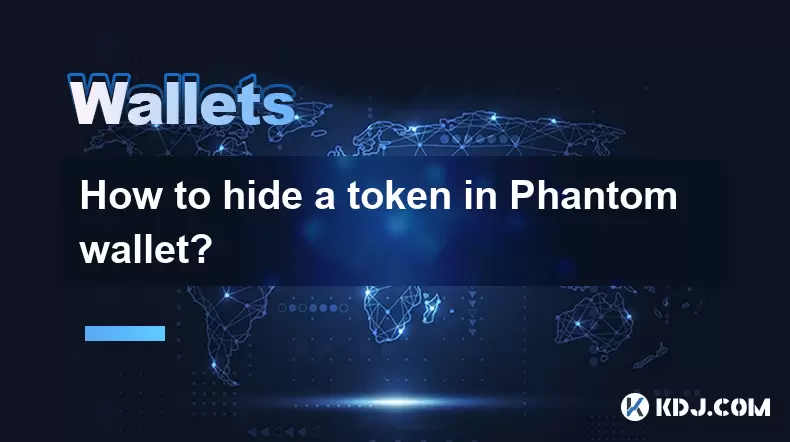
How to hide a token in Phantom wallet?
Jul 01,2025 at 05:49pm
Understanding the Phantom Wallet InterfacePhantom wallet is a popular non-custodial wallet used primarily for interacting with the Solana blockchain. It allows users to store, send, receive, and manage various tokens, including both fungible and non-fungible tokens (NFTs). Before attempting to hide a token, it's essential to understand how the wallet in...
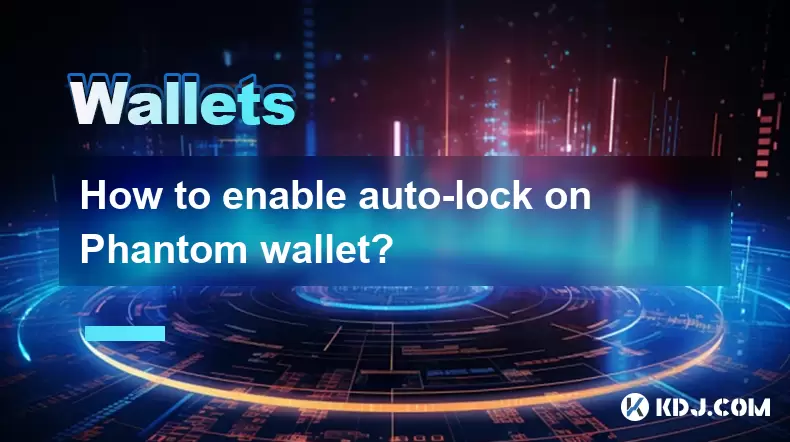
How to enable auto-lock on Phantom wallet?
Jul 01,2025 at 04:01pm
What is Auto-Lock in Phantom Wallet?Phantom wallet is a popular non-custodial cryptocurrency wallet used primarily for interacting with the Solana blockchain. One of its security features includes the ability to set an auto-lock timer, which ensures that the wallet locks itself automatically after a period of inactivity. Auto-lock enhances security by p...
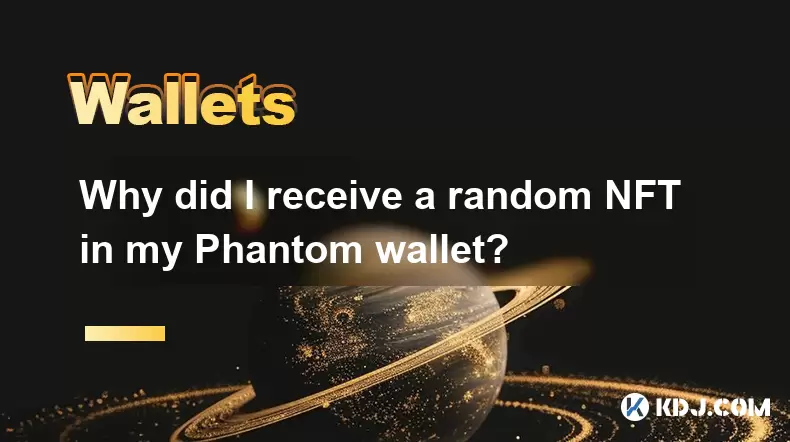
Why did I receive a random NFT in my Phantom wallet?
Jul 01,2025 at 09:00pm
Receiving an Unexpected NFT in Your Phantom WalletIf you've recently opened your Phantom wallet and noticed an unfamiliar NFT appearing in your collection, you're not alone. Many users have reported receiving random or unsolicited non-fungible tokens, often without any prior interaction with the project or sender. This phenomenon has become increasingly...
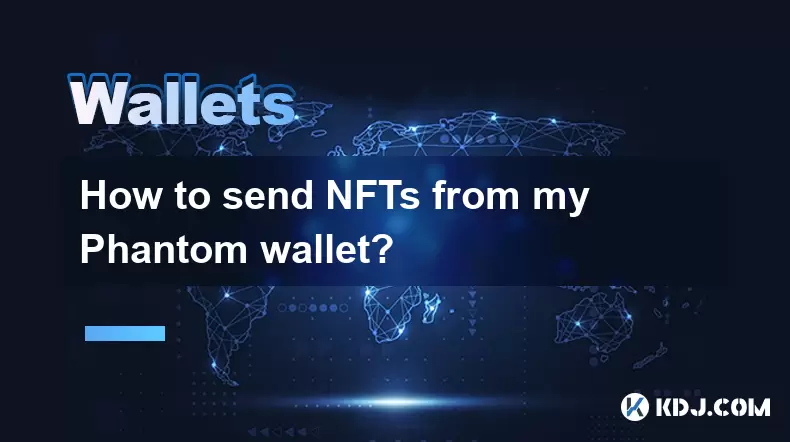
How to send NFTs from my Phantom wallet?
Jul 02,2025 at 03:15am
What is Phantom Wallet and Why Use It for NFT Transfers?Phantom wallet is a non-custodial cryptocurrency wallet primarily used for interacting with the Solana blockchain. It supports both tokens and NFTs, making it a popular choice among users who engage in decentralized finance (DeFi) or digital collectibles. The interface is user-friendly, allowing ev...
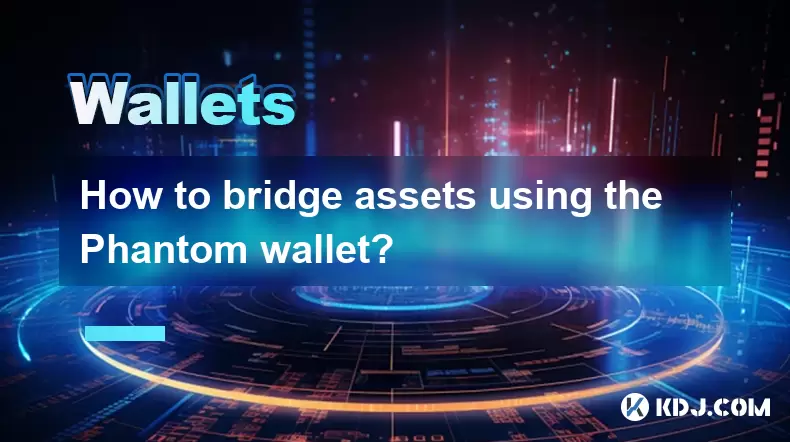
How to bridge assets using the Phantom wallet?
Jul 02,2025 at 02:50am
Understanding the Basics of Asset BridgingAsset bridging refers to the process of transferring digital assets from one blockchain network to another. This functionality is crucial in a multi-chain ecosystem where users may need to move tokens between different networks for various purposes, such as accessing decentralized applications (dApps), participa...

How to reset my Phantom wallet?
Jul 02,2025 at 12:36am
Understanding the Need for Resetting Your Phantom WalletIf you're using a Phantom wallet, you may encounter situations where resetting your wallet becomes necessary. This could be due to forgotten passwords, seed phrase issues, or account corruption. Phantom is a non-custodial wallet primarily used for interacting with the Solana blockchain, and it stor...

How to hide a token in Phantom wallet?
Jul 01,2025 at 05:49pm
Understanding the Phantom Wallet InterfacePhantom wallet is a popular non-custodial wallet used primarily for interacting with the Solana blockchain. It allows users to store, send, receive, and manage various tokens, including both fungible and non-fungible tokens (NFTs). Before attempting to hide a token, it's essential to understand how the wallet in...

How to enable auto-lock on Phantom wallet?
Jul 01,2025 at 04:01pm
What is Auto-Lock in Phantom Wallet?Phantom wallet is a popular non-custodial cryptocurrency wallet used primarily for interacting with the Solana blockchain. One of its security features includes the ability to set an auto-lock timer, which ensures that the wallet locks itself automatically after a period of inactivity. Auto-lock enhances security by p...

Why did I receive a random NFT in my Phantom wallet?
Jul 01,2025 at 09:00pm
Receiving an Unexpected NFT in Your Phantom WalletIf you've recently opened your Phantom wallet and noticed an unfamiliar NFT appearing in your collection, you're not alone. Many users have reported receiving random or unsolicited non-fungible tokens, often without any prior interaction with the project or sender. This phenomenon has become increasingly...

How to send NFTs from my Phantom wallet?
Jul 02,2025 at 03:15am
What is Phantom Wallet and Why Use It for NFT Transfers?Phantom wallet is a non-custodial cryptocurrency wallet primarily used for interacting with the Solana blockchain. It supports both tokens and NFTs, making it a popular choice among users who engage in decentralized finance (DeFi) or digital collectibles. The interface is user-friendly, allowing ev...

How to bridge assets using the Phantom wallet?
Jul 02,2025 at 02:50am
Understanding the Basics of Asset BridgingAsset bridging refers to the process of transferring digital assets from one blockchain network to another. This functionality is crucial in a multi-chain ecosystem where users may need to move tokens between different networks for various purposes, such as accessing decentralized applications (dApps), participa...
See all articles





















